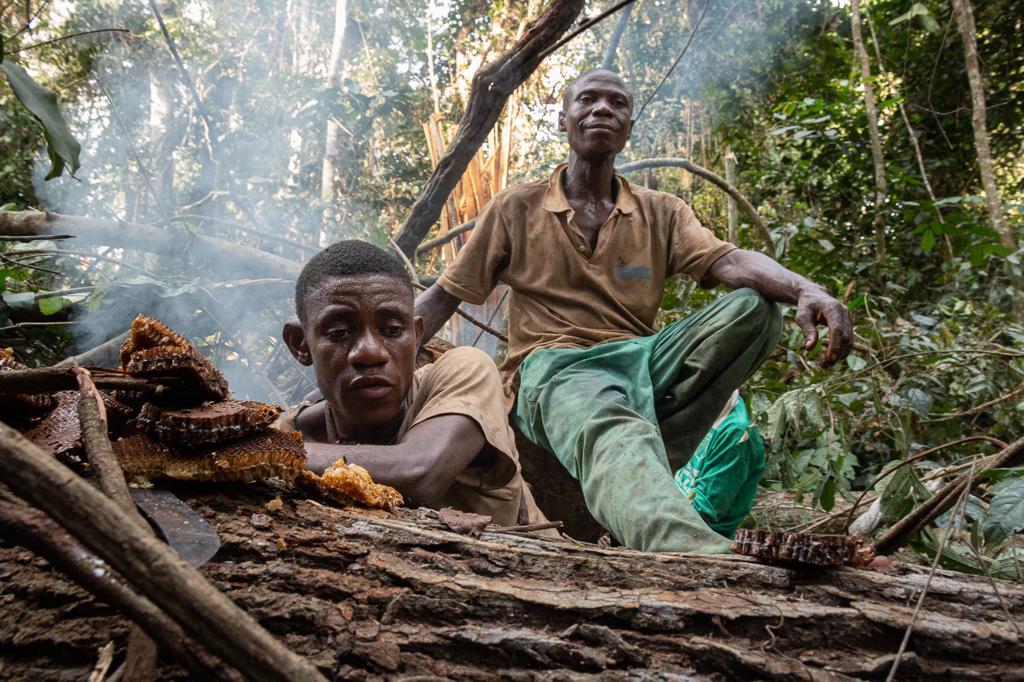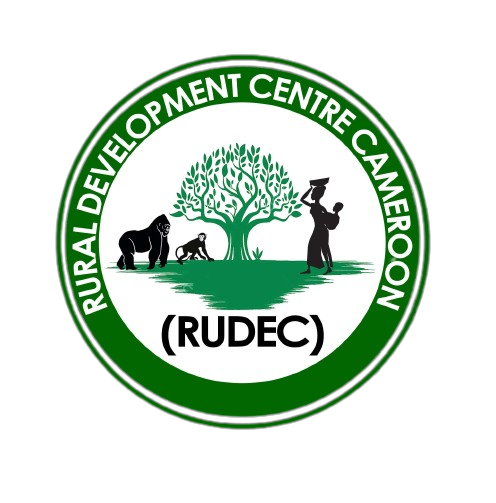Indigenous Peoples Rights Program
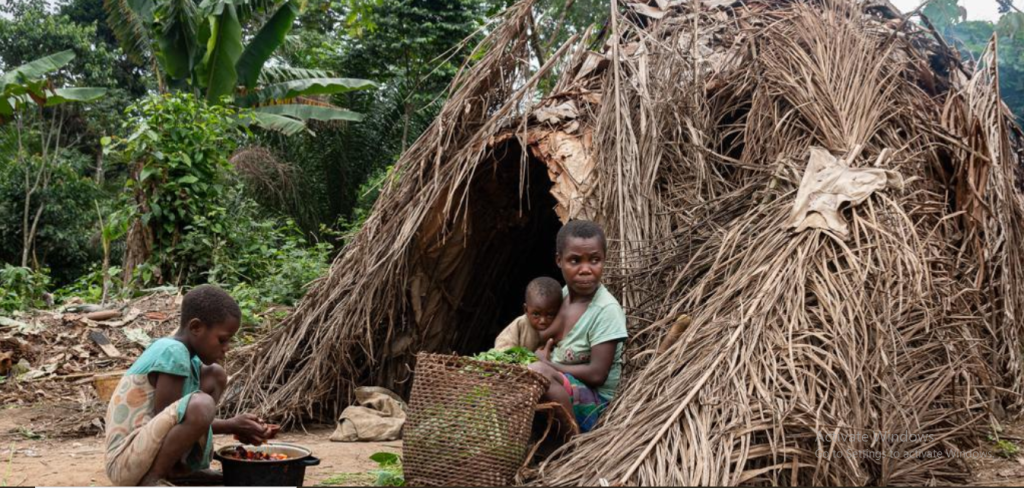
Strengthening the capacity of Baka pygmy families in the South region of Cameroon through Sustainable Apiculture.
Introduction
At a social level, there is strong discrimination on the part of the collective imagination about pygmies (lazy, primitive, etc.) and, in turn, this people’s lack of knowledge about the political and economic context in which they live. This translates into a lack of representation and participation in political life and the violation of their rights as Cameroonian citizens and as an “indigenous” collective.
This project is framed within RUDEC’s “ Indigenous Peoples Rights Program” for the Baka people in southern region of Cameroon, a program that is known by the Agricultural Delegation of the area and that will guarantee the monitoring and sustainability over time of the project.
The development of the activities is carried out involving those responsible for the Ministry of Social Affairs. Their participation is important because the execution of the “Pygmy People’s Development Plan” in the region depends on them and, in addition to guaranteeing other objectives, it must guarantee access to land for the Baka communities.
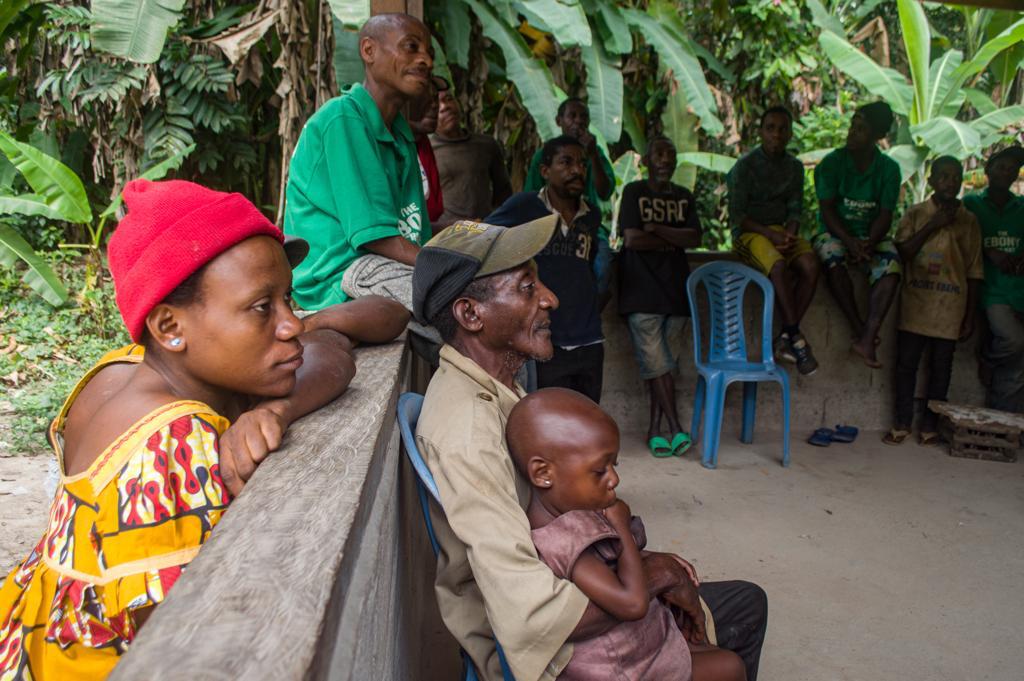
Context and background
The Baka Pygmy ethnic minority in Cameroon lives mainly in the department of Dja-et-Lobo, in the south region of the country, the site of the project’s intervention, near the borders of Gabon and Congo-Brazzaville. Recognized as the first inhabitants of the forest areas of Central Africa, their historical evolution occurred outside the policies of their States. Today they find themselves without any representation in social life and almost excluded from community organization and its main services, and without recognition of the right to territory. The Baka people have traditionally had a nomadic life, based on economic activities associated with hunting, fishing and collecting wild fruits within the forest itself.
“Today the Baka people find themselves without any representation in social life and almost excluded from community organization and its main services, and without recognition of the right to territory”
Through these interventions, RUDEC promotes the political participation of pygmies so that they can defend their social, cultural and political interests. Their strategies are intended to:
1. Empower members of indigenous and local communities (rights holders) to claim and exercise their human rights
2. Support the action of entities (duty bearers) that have the responsibility to guarantee, respect, protect and fulfill the rights of communities, including marginalized groups.
Project justification
The Baka people are the native people of the large humid forests of the Congo River basins. For half a century they have suffered a process of forced abandonment of their traditional way of life among neighboring towns, leaving them in a situation of disadvantage and marginality.
Currently, the trade in non-timber forest products from these forests is increasing, making this market a potential opportunity for the Baka pygmy people, traditionally dedicated to the collection of wild products.
The intervention areas of the “Seed Banks” and “Initiation to Beekeeping” projects belong to the BENGBIS, SOMALOMO and MINTOM. They are innovative projects because, even though they are traditional activities, they are currently non-existent in these areas.
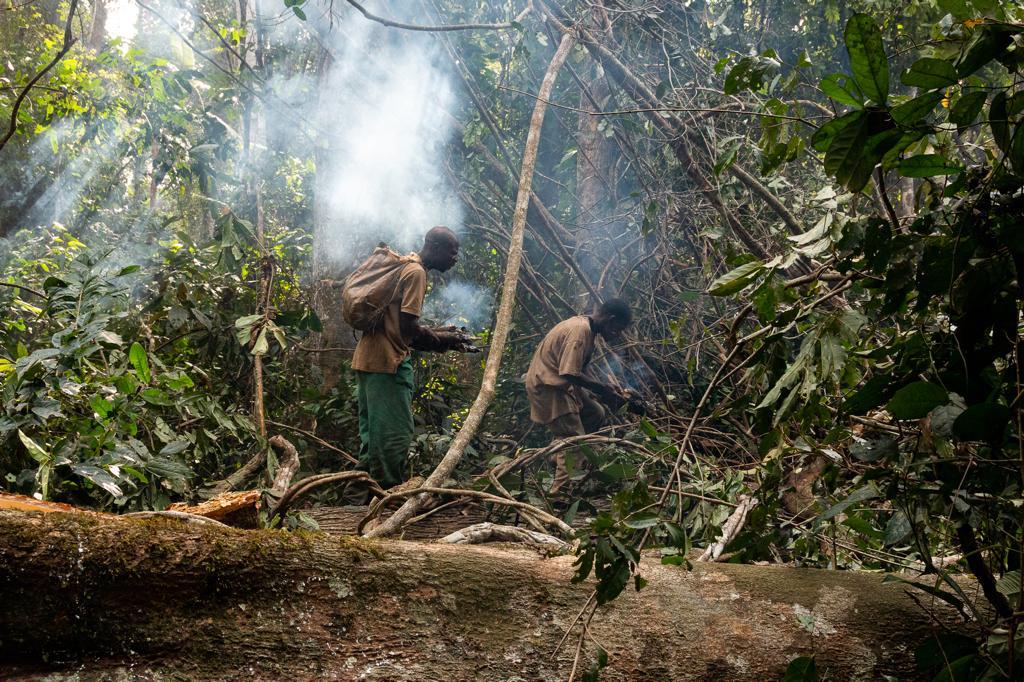
Beekeeping favors the acquisition of products of high cultural value for the community that directly affect their diet. These products are highly valued by the markets, which results in the improvement of the economy and diversification of income sources. Added to this is that seed banks will contribute effectively to beekeeping activity, where honey can be processed, and will also be places of excellent quality for its commercialization.
Apart from the local market, the sale of forest honey is already of interest to foreign associations for the promotion of beekeeping in the production of their forests and the fight against poaching, which guarantees its commercialization. The municipalities of Somalomo, Bengbis and Mintom have a program to support beekeepers in these localities in their sales and distribution strategy.
The Baka communities had been left out of the program because they were not registered as groups with production activities. Currently, registered cooperatives can be part of these beekeeping groups that benefit from the program, thus promoting sustainability.
The residents of the project intervention areas could benefit from the possibilities of seed banks since small parallel businesses could be developed during sales. In addition to the above, seed banks are an ideal setting for meetings between the Baka and even with the Bantu for common topics.
Why Beekeeping?
Beekeeping represents an opportunity to improve the quality of life and favors the conservation of the biodiversity of the jungle environment, which in turn favors the improvement of natural and non-intervention production of wild fruits. Bees are an endangered species and their role in conserving biodiversity and improving agricultural yields is well established. Furthermore, the pollinating action of bees makes it possible to remedy the problems of loss of plant biodiversity in the forest. The bee acts as a sentinel and warning agent against environmental damage, it is a particularly effective bio indicator since, in fact, it is in daily contact with the biotic and abiotic elements of ecosystems, such as plants, water, soil and vegetation.
“Apart from the local market, the sale of forest honey is already of interest to foreign associations for the promotion of beekeeping in the production of their forests and the fight against poaching, which guarantees its commercialization”
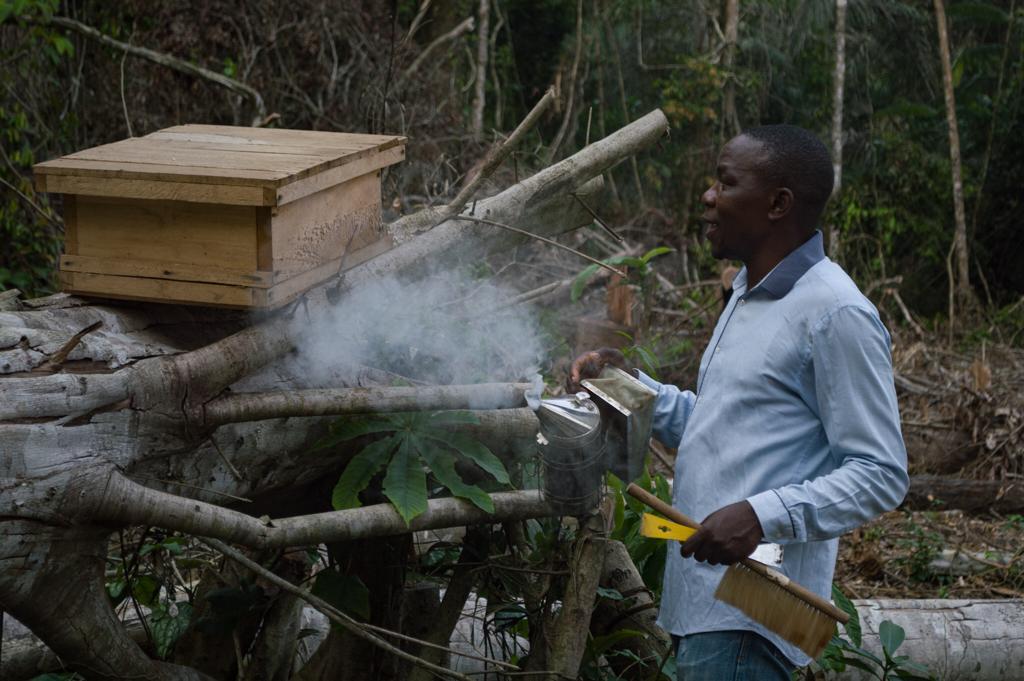
The pilot project phase
As part of the “Autonomy and Indigenous Peoples Rights Program” plan, a pilot project was carried out by RUDEC in the Bengba community in August 2022, where a hangar was built to store forest harvesting products (NTFP). This hangar ( seed bank ), in addition to being a warehouse to store the products collected in the forests and being the headquarters of the cooperative, will also serve as a common place for the group, meeting centers where the Baka population can meet and discuss .
For the first time in Cameroon, 5 Baka pygmy villages were able to create their agroforestry cooperatives and two others are waiting to finalize the processing of theirs. From these cooperatives, these Baka groups are recognized by the government as producers, making them eligible for possible private subsidies, from the State or other development partners.
With Bengba’s pilot experience, the results that we associate with the Seed and NTFP Bank have been verified:
1. Promotion of the associative network: With seed banks, the empowerment of groups has been promoted, allowing them to organize discussion and participatory decision-making as well as the admission of new members by decision of the group.
2. Joint marketing: Knowing the difficulties that an isolated collector has in accessing markets, the group proves to be the ideal and preferred framework in the search for appropriate solutions. After each harvest period of some forest products, each of the members of the group has had the possibility of storing small quantities of the collected product and at the end of the harvest, all the members decide to proceed with the group sale allowing each one have better economic results in the sale .
3. Possibilities for savings: The seed bank has also allowed cooperative members to jointly store the seeds of some crops such as peanuts, with joint management of the warehouse to reduce costs and manage to maintain it over time until the next planting season, avoiding dependency of credits to launch new crops.
Honey
Among the BAKA, honey is a highly valued product that is offered to loved and very important people. The novelty is being able to cultivate it, since the only thing they know is the collection of it in wild honeycombs, making it a scarce and difficult to manage commodity. In 2015, in conjunction with the Minton town council and PADI-Dja, a training experience for agents for honey production began. Once the awareness of honey cultivation has been generated, the implementation of this activity would not only allow more honey for the enjoyment of the neighbors, but also turn it into a great source of income. The implementation of this technique provides for the development of capabilities in beekeeping disciplines so that the activity can continue infinitely. Then the people trained for the daily maintenance of the hives will be selected, which materializes their participation in the execution of this activity.
Technical information
The seed banks are hangar constructions with a rectangular base, measuring 4.5m by 8m.
They consist of a part without exterior enclosures for meetings of 3m x 4 m and two closed rooms, one for a dry warehouse of 4.5m x 2.50 m and another for support for a materials warehouse of 4.50 m. x 1.50 m.
The construction is very simple and is carried out with local wood for the structure of the walls and roof and local sand for the manufacture of the cement blocks on site with which the walls will be built. The doors (2) and windows (2) will be built from local wood.
Goals
General Objective: Strengthening the associative fabric to improve livelihoods
Specific Objective: Improve the production, storage and marketing channels of non-timber forest products (fruits, seeds and honey) with the following results:
1. Dynamization of 4 Baka cooperatives
2. Reinforcement of collection and storage capacities
3. Implementation of a community system for collecting, storing and selling non-timber forest products.
4. Strengthening the capacities of beekeepers and cooperative strategies in seven cooperatives (Akom, Assok, Oudoumou, Doum, Bengba; Mimbil, Ndjibot)
5. Assist in the commercialization of NTFP.
Beneficiaries
The project works directly with the men and women associated in the cooperatives of each of the intervention towns, cooperatives in which all families are represented. Cooperative members receive training and material resources to carry out the tasks of collecting, storing and selling products. Farmer families are the direct beneficiaries since, as a result of these activities, they receive forest products for food or as a surplus for sale.
Each of the towns in which we intervene is a direct beneficiary of this project, mainly through three ways:
1. The training is open to all those interested (even if they are not members of the cooperative)
2. Access to non-timber forest products is increased in a sustainable manner throughout the year. In addition, some of the fruits or seeds stored in the banks will be used as seeds for neighbors (future members of the cooperatives) since they remain open in their constitution.
3. Other peoples will quickly benefit from the multiplier effect of these since, being a small and minority ethnic group among the Bantu population, among the populations all the Baka pygmy communities have crossed family ties.
RUDEC works with a total of 98 family units in the 7 towns with which it works directly. In the area in which it operates (Djoum, Mintom, Bengbis and Somalomo) there are a total of forty-two Baka villages settled around thirty Bantu villages. The pygmy population of the region is estimated at about three thousand people.
Direct Beneficiaries
98 Baka families (mostly). Each of the Baka families in the area is made up of about 6 members, so the total number of people directly benefiting from the project would be 588.
Indirect Beneficiaries
630 Baka families and 2,300 Bantu families
